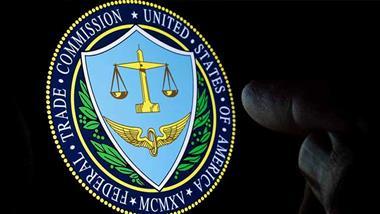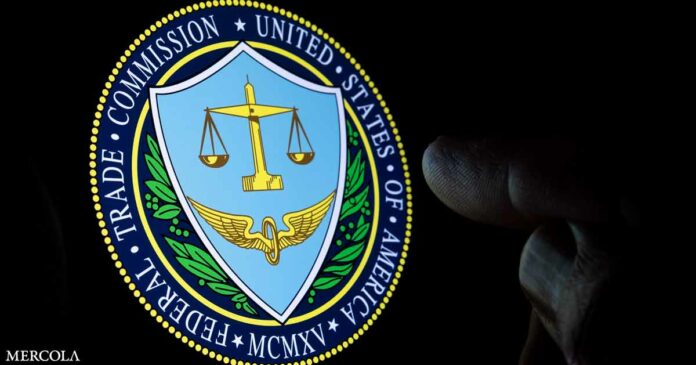
Story at-a-glance
- The FTC sent warning letters to two trade groups and more than a dozen influencers — including 12 registered dieticians — who made posts on Instagram and TikTok promoting the artificial sweetener aspartame as well as sugar-containing products
- After WHO warned of aspartame health risks, a coordinated campaign by trade group American Beverage resulted in at least 35 paid social media posts from health professionals
- The Canadian Sugar Institute, a trade group funded by the sugar industry, also paid registered dieticians to promote junk foods like ice cream, peanut butter cups, doughnuts and cookies
- The FTC letters that were sent to the American Beverage Association and the Canadian Sugar Institute warn that the trade groups may have violated the FTC Act because they didn’t adequately disclose that the influencers’ posts were actually paid promotions
- Civil penalties of up to $50,120 per violation could be imposed for any future failures to disclose “unexpected material connections,” according to the FTC
The Federal Trade Commission may be cracking down on social media influencers for failing to adequately disclose that they’re paid industry shills. The Commission sent warning letters to two trade groups and more than a dozen influencers — including 12 registered dieticians — who made posts on Instagram and TikTok promoting the artificial sweetener aspartame as well as sugar-containing products.1
The FTC’s Guides for Endorsements and Testimonials states that all paid endorsements should contain clear and conspicuous disclosures as such “to ensure that consumers have the information they need to make informed purchasing decisions.”
But in what appears to be an orchestrated campaign to downplay World Health Organization warnings about aspartame’s safety and promote high-sugar junk foods, the social media posts failed to make it clear that the influencers had blatant conflicts of interest.
“Each of the warning letters identified what appeared to be paid posts that either did not disclose a material connection, or that contained disclosures that may be inadequate,” according to the FTC.2
Industry Paid Dieticians to Promote Aspartame on Social Media
The FTC’s warning letters stem in part from updated WHO assessments that call aspartame’s safety into question. First, in May 2023, WHO released a guideline advising not to use non-sugar sweeteners (NSS), i.e., artificial sweeteners, for weight control because they don’t offer any long-term benefit in reducing body fat in adults or children.3
The systematic review also suggested “potential undesirable effects from long-term use of NSS, such as an increased risk of Type 2 diabetes, cardiovascular diseases and mortality in adults.” Bladder cancer was also among the potential risks.4 Then, July 14, 2023, WHO released its hazard and risk assessments of aspartame,5 in which WHO’s International Agency for Research on Cancer (IARC) classified aspartame as “possibly carcinogenic to humans.”
The American Beverage Association (AmeriBev), a lobbying group with members including Coca-Cola and PepsiCo, took action, hiring dietician influencers to spread the hashtag #safetyofaspartame, while blasting WHO’s aspartame designation as “clickbait” and “fear mongering.”6
A joint investigation by The Washington Post and The Examination revealed this wasn’t coincidence but a coordinated campaign by trade group American Beverage, which resulted in at least 35 social media posts from health professionals. According to The Washington Post:7
“The trade group paid an undisclosed amount to 10 registered dietitians, as well as a physician and a fitness influencer, to use their social media accounts to help blunt the WHO’s claims that aspartame, a mainstay of Diet Coke and other sodas, is ineffective for weight loss and “possibly carcinogenic.”
The campaign, which the beverage group acknowledged organizing, highlighted a little-known tactic the multibillion-dollar food and beverage industry is using to sway consumers faced with often-contradictory health messages about popular products.”
Dietician Influencers Paid to Promote Ultraprocessed High-Sugar Junk Food
The Canadian Sugar Institute, a trade group funded by the sugar industry, also paid registered dieticians to promote its products. One dietician from Vancouver, British Columbia, posted videos of herself eating ice cream, peanut butter cups, doughnuts and cookies. “She said the ‘best’ ways to cut sugar are ‘with a knife, with my hands, even with my teeth,’” The Washington Post reported.8
In addition to stating the post was “dietitian approved,” she wrote “(AD)” to notate that the post was an advertisement. Later, after inquiries were made, she added “CdnSugarNutr,” the Instagram account for the Canadian Sugar Institute. But according to the FTC, this may not be enough to let the average consumer know about the paid partnerships.
In FoodNavigator-USA’s Soup-To-Nuts Podcast, Laura Brett, vice president of the BBB National Programs’ National Advertising Division, said the FTC letters make it clear that influencers not only must state that their post is sponsored but also explain who the sponsor is in a way that consumers can understand. Brett said in the podcast:9
“The FTC letters make it clear that when you’re making a disclosure, you should be looking at the disclosure from the eyes of a consumer and specifically the consumer who’s going to be looking at it.
So while several of these posts did have a disclosure, indicating a sponsor whether AmeriBev or some sort of abbreviation for the Canadian Sugar Association, the FTC said that that was insufficient … because the FTC is looking at this from the point of view of a consumer who may not be that familiar with those associations.”
Trade Groups May Have Violated the FTC Act
The FTC letters sent to the American Beverage Association and the Canadian Sugar Institute warn that the trade groups may have violated the FTC Act because they didn’t adequately disclose that the influencers were paid to promote aspartame’s safety and sugar-sweetened products. Samuel Levine, director of the FTC’s Bureau of Consumer Protection, said:10
“It’s irresponsible for any trade group to hire influencers to tout its members’ products and fail to ensure that the influencers come clean about that relationship. That’s certainly true for health and safety claims about sugar and aspartame, especially when made by registered dieticians and others upon whom people rely for advice about what to eat and drink.”
Concerns noted in the letters included inconspicuous placement of disclosures, ambiguous language and failure to clearly identify the sponsor of the posts. Civil penalties of up to $50,120 per violation could be imposed for any future failures to disclose “unexpected material connections,” according to the FTC, which also asked the letters’ recipients to contact the FTC within 15 days to detail what actions would be taken to address the stated concerns.11
Levine said he hopes the FTC letters set a precedent for full disclosure on sponsored social media posts that will affect not only the food and beverage industries but also other markets. He added that “sophisticated groups” like trade associations “should be familiar” with the law. More than $6 billion was spent on U.S. influencer marketing in 2023, and this is expected to rise to $7 billion 2024, The Washington Post reported, adding:12
“The crackdown, which represents more aggressive enforcement of the FTC’s rules, signals that the agency seeks to set a new precedent for holding both influencers and industry accountable for social media marketing campaigns that fail to make clear who is funding them.
The action also could dramatically change the social media feeds of popular influencers who now often rely on vague hashtags such as #ad or #sponsored rather than clearly naming the brand or company paying them.”
FTC Calls for ‘Clear and Conspicuous’ Disclaimers
The letters highlighted best practices for sponsored social media posts, including revealing any type of “material connection” with a sponsor. This connection could be in the form of monetary or other “payments,” including free products and other gifts. The disclaimers must also be large enough for consumers to easily see them and must stand out — as opposed to getting lost due to poor contrast.13
Disclosures may also need to be repeated multiple times, including in audio and video, if applicable, and should exist in the first few lines of text, not far down in the post.14 “Consumers should be able to notice the disclosure easily, and not have to look for it,” the letters state.15 This includes not having to click to find it. In its letter to the American Beverage Association, for instance, the FTC stated:16
“Material connections could consist of a business or family relationship, monetary payment, or the provision of free products to the endorser.
“Clear and conspicuous” means that a disclosure is difficult to miss (i.e., easily noticeable) and easily understandable by ordinary consumers … We have a number of concerns about the adequacy of disclosures by the dieticians regarding their apparent connections to [the American Beverage Association].”
Both the sponsoring trade groups and the influencers are responsible for disclosing any connections, and the FTC acknowledged that influencers’ who are health professionals are likely to be viewed with greater authority, raising the potential for harm.17
“[T]he fact that most of the influencers in question were registered dieticians wasn’t lost on FTC staff,” an FTC business blog reported. “Consumers are likely to give greater weight to the opinions of health professionals, which compounds the potential for injury when material connections aren’t properly disclosed.”18
Junk Food Industry Regularly Influences Nutrition Policy
Paying social media influencers to downplay warnings about aspartame’s safety or excessive sugar consumption is just one tactic used by the food industry. The Academy of Nutrition and Dietetics, which represents more than 112,000 credentialed nutrition and dietetics practitioners,19 is also captured by industry — a relationship that isn’t adequately disclosed to the public.
As the U.S. “authority” on food policy, the Academy of Nutrition and Dietetics (AND) influences the development of U.S. dietary guidelines — yet has uncomfortably close ties to Coca-Cola, PepsiCo, General Mills and Kraft, among other industry giants.20
In fact, a five-year investigation conducted by public health scholars and U.S. Right to Know revealed a symbiotic relationship between AND, the AND Foundation (ANDF) and corporations, which assist AND and its foundation with financial contributions.21
Not surprisingly, AND acts as a proindustry voice22 — one that cannot, in this capacity, represent the best interests of Americans’ health. AND received millions of dollars from companies in the food, pharmaceutical and agribusiness industries. In exchange for these gifts, AND “had policies to provide favors and benefits in return.”23
AND leaders have acted as employees of or consultants for multinational food, pharmaceutical and agribusiness corporations, and the organization discusses policies to “fit the needs of its food, agribusiness and pharmaceutical industry sponsors.”24 So, industry trade groups paying AND’s registered dieticians to promote aspartame and sugar online is just one small cog in a giant industry-beholden machine.
Still, the FTC’s warning letters may result in more transparency when it comes to information shared on social media and elsewhere online. Remember to seek nutrition and other health advice from sources that put human health ahead of profits. And support those who are working to raise awareness about the widespread corruption tainting public health.
- 1,2,10,11Federal Trade Commission November 15, 2023
- 3WHO May 15, 2023
- 4WHO April 12, 2022, Executive Summary
- 5IARC July 14, 2023
- 6,7,8The Washington Post September 13, 2023
- 9,13,14Food Navigator-USA November 20, 2023
- 12The Washington Post November 15, 2023
- 15,16,17,18Federal Trade Commission Business Blog November 15, 2023
- 19Academy of Nutrition and Dietetics, About the Academy
- 20,23,24U.S. Right to Know October 24, 2022
- 21,22Public Health Nutrition October 24, 2022, Abstract
Source: Original Article
Publish Date: 2023-12-12 07:45:02

